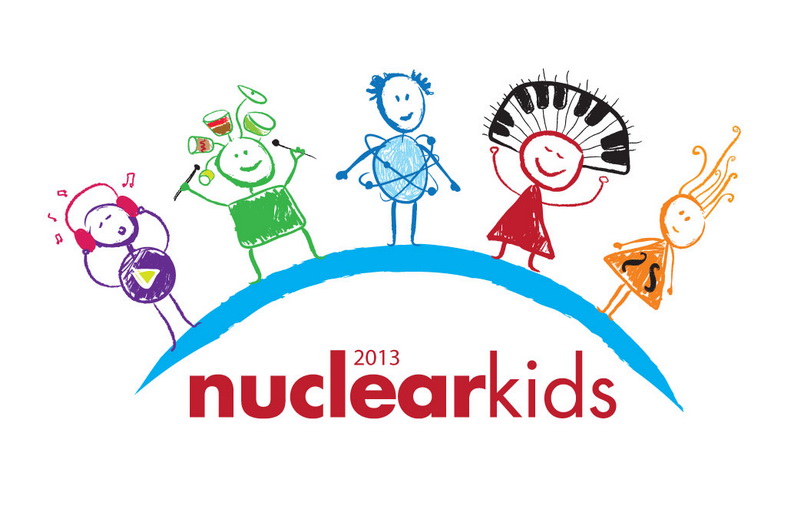We’re On Air!
25.09.2010
15.09.2013

On August 4th, more than eight dozen teenagers performed in the hall intended for chamber performances at the Comedy Theater in Prague. It seemed that a powerful energy filled even the most inconspicuous corner of the hall and rapidly drew each spectator into its action, defining him an original role. But first things first.
The children on stage seem to be ordinary, but at the same time, they are exceptional and talented kids from families of nuclear industry workers from nine countries. It is hard to believe that most of them did not even know each other a few weeks ago. In the first half of the year, each of them successfully passed a huge casting for participation in the Fifth International Project for Children Nuclear Kids 2013 (the author of the idea is Sergey Novikov) of ROSATOM, all this resulted in a musical with the laconic title We.
For 21 days (!) in the Hungarian landscapes the guys intensively rehearsed the musical performance under the watchful guidance of the masters of their craft – Chief Director Vladimir Karabanov, Choreographer Maxim Nedolechko, Vocal Teacher Albina Seidametova, Composer Grigory Nemirovsky and other professionals, in order to eventually demonstrate their creation at several international venues. Including Prague.
To be honest, for many interested people, the phrase “modern musical” evokes an ambiguous reaction. Especially when it comes to Russian-language versions. For the last few years, it has been believed that musical performances of this kind are a matter of pure bourgeois glamor. And having breathed in these tendencies and knowing the difficult conditions of preparation of the children’s project, it was assumed, willy-nilly, that we would have to “make discounts” on the lack of cohesion of the artists, tight deadlines, large scale and many other things. However, we did not have to.
From the first minutes of the performance, everything began to surprise us. According to the plot, the project is a quality backstage musical with dialogues, revealing the secrets of backstage life with a slight taste of poisonous intrigue. In this case, the story tells about the entanglements of the participants of the international children’s competition Talents of the XIX Century, which takes place in a Russian school and becomes an obstacle in the friendship and mutual respect of the children. Everything is grown-up: journalistic fraud, elimination of competitors, provocations, betrayals and romance of course! All was reminiscent of the wonderful, although a little bit worn out Disney’s High School Musical (High School Musical, 2006). However, the musical We was able to distinguish itself favorably from its Broadway counterpart in the genre.
The 17 vocal and choreographic pieces are a special feature. It seems that the most important criterion for musicals is even exceeded: Grigory Nemirovsky’s music makes you not only involuntarily nod and tap along to the beat, but also hum it several hours after the performance. At the same time, the musical structure of the performance We is not so simple and unambiguous, you can learn styles and directions from it: there are Korean dance with fans, Hungarian folk choir, white rap a la Eminem, Elvis’ rock’n’roll, typical Broadway tunes, Irish dances and much more. By the way, for fans of TV mainstreams, the production also has some surprises, such as, for example, unambiguous allusions to the fastest-talking journalist Kandelaki or the movies Kill Bill and Men in Black.
However, the most important thing, of course, is the actors themselves. Until the last, I could not believe that there were non-professional actors on stage. The subtle nuances of facial expressions, gestures and recitation made us admire them. Powerful voices of the main characters of the musical (performed by Vlad Tashbulatov, Daria Antonyuk and others) with rich chesty sound and a special Broadway style of performance, accuracy and naturalness in transitions from vocal number to dialog, a sense of integrity and adult responsibility – all this is the birth of a great miracle on a small stage.
The kids live by the motto woven into the lyrics of one of the songs: “We must believe that dreams come true”. We can only hope that dreams and potentials realized thanks to the project will be meaningful for the kids. In the meantime, they will go on to present their creation and collect grateful and enthusiastic feedback from the audience.